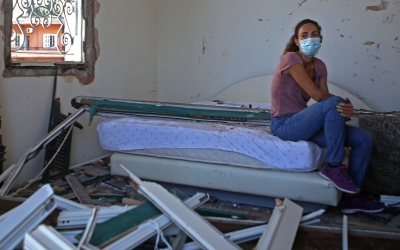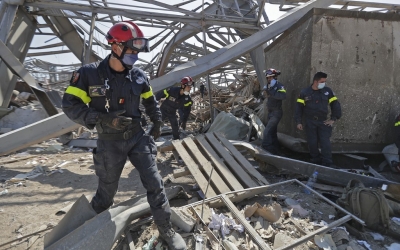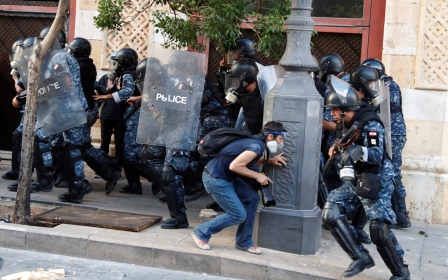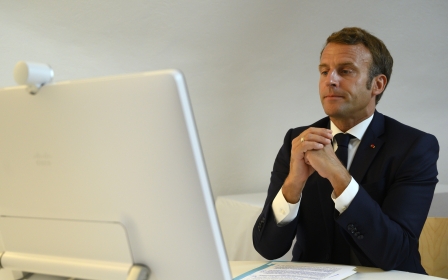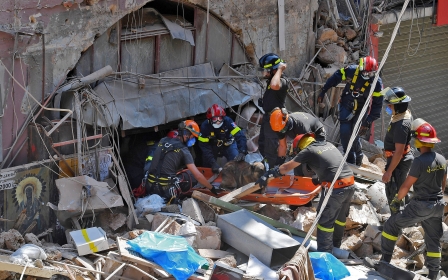Lebanon's state failure is Macron's opportunity to be saviour
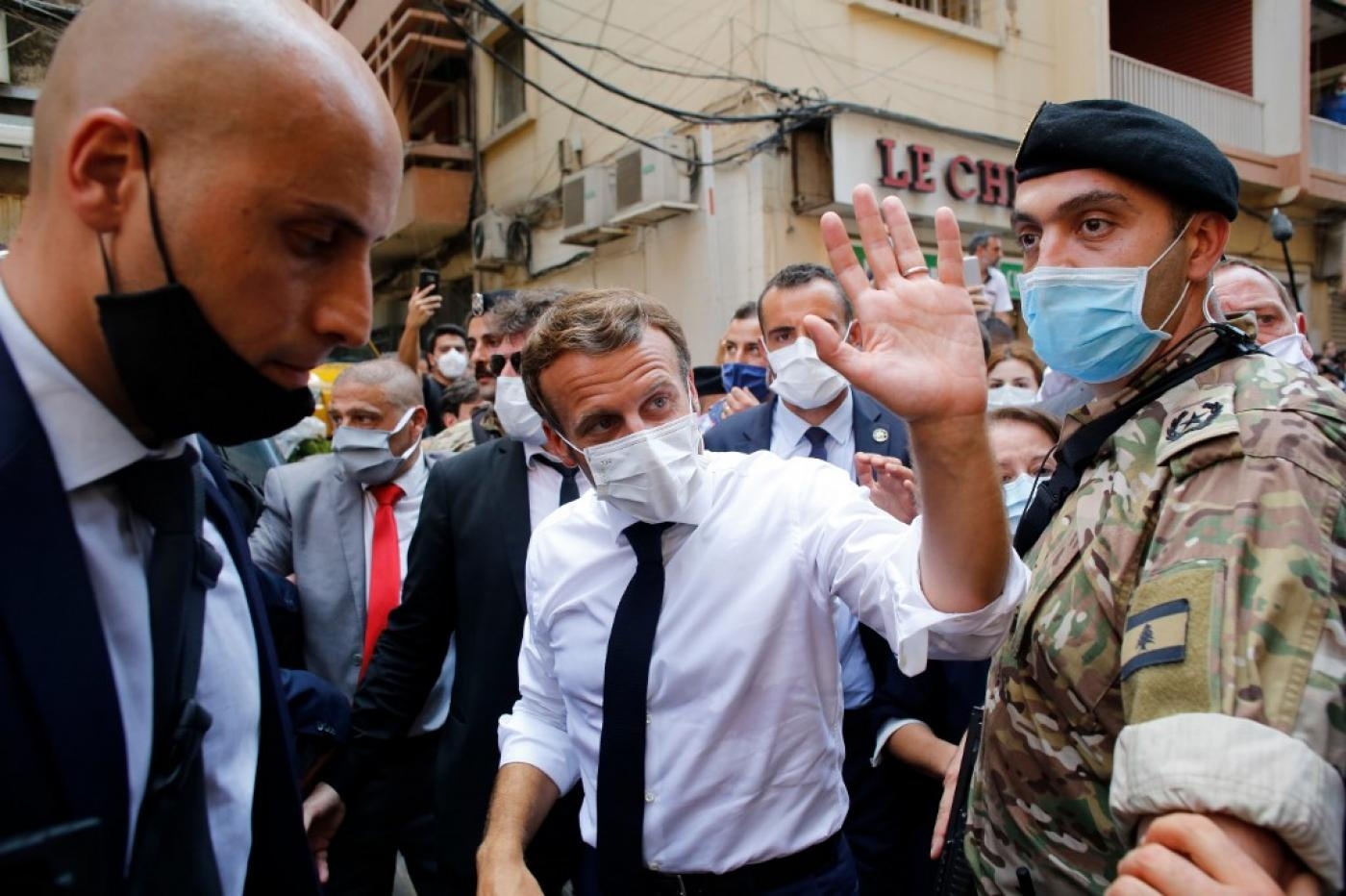
Just hours after French President Emmanuel Macron's visit to Beirut on Thursday 6 August, a petition gathering more than 57,000 signatures was launched, demanding to "place Lebanon under French mandate for the next ten years".
“Lebanese officials have clearly shown a total inability to secure and manage the country. With a failing system, corruption, terrorism and militias, the country has just reached its last breath. We believe that Lebanon must come back under the French mandate in order to put in place a clean and sustainable governance,” it stated.
The petition was intended to be an expression of the anger in Lebanon towards the authorities after the catastrophe of the explosion on 4 August, in the port of Beirut, which left 154 dead (provisional assessment).
Back to the mandate. In 1920, the League of Nations (SDN) set up the “French mandate in Syria and Lebanon” after stripping control from the defeated Ottoman empire. France then becomes a sort of general administrator of Lebanon, thus founding “The State of Greater Lebanon” desired by the Maronite patriarchate under French protection.
Franco-African paradigm
The proclamation of Greater Lebanon was made on 1 September 1920 by General Henri Gouraud representing the authority of the French mandate in Syria, from the steps of the Pine residence in Beirut, the French high commissioner's residence at the time.
A century later, on the same Pines residence, which has become the official home of the French ambassador to Lebanon, that the French head of state lectures the eight Lebanese political leaders on Thursday 6 August, threatening them to return on 1 September to inspect the premises and see whether its recommendations have been followed.
Just before this meeting, Macron was strolling among the ruins in the devastated Christian quarter of Gemmayze in East Beirut. “Mr President, you are on the rue du General Gouraud who freed us from the Ottomans. Free us from the current authorities,” passers-by urged him.
"When I hear you, all of you, the politicians I have met, the people in the street and the media, it looks like you are saying to me: ''Come back to the mandate'," Macron exclaimed at the end of the visit during his press conference, while insisting on the “sovereignty” of Lebanon and its people.
The president wishes to play the delicate balance between the heritage of French king Francois 1, protector of a Christian minority in the East, and the pragmatic administrator who criticises everyone.
Macron, who displays his distance from the Francafrique paradigm, see
Incongrous idea
The idea of placing Lebanon under trusteeship is certainly incongruous, as Yann Kerbrat, professor of international law at the Sorbonne explains to Le Figaro: "A mandate strictly speaking is obviously very improbable, the terminology used refers to an institution which ended with the creation of the UN in 1945. The Lebanese state is sovereign and the UN charter does not contemplate such a case of taking over of [a country's] national affairs by another country."
No, Macron does not want to annex Lebanon and, ultimately, is less "sectarian" than his predecessors by "bawling out" everyone including the pro-Western camp of March 14, as was the case during this meeting at the Residence des Pines, in front of the eight representatives of the most influential political currents in Lebanon.
If he wants the cleaning up of the political and banking system of the country (this goes hand in hand in Lebanon), Paris is not the best lesson giver in the field
But what can he really do? Because if he wants the cleaning up of the political and banking system of the country (this goes hand in hand in Lebanon), Paris is not the best lesson giver in the field.
This same France - which declares its support for the expression of freedoms and the claims of dignity of the Lebanese revolution launched in October 2019 - offers no more support than its diplomacy led by Jean-Yves Le Drian, the friend of the Sisi-Haftar-MBZ-MBS alliance of the most brutal of counter-revolutions.
As the Lebanese daily al-Akhbar reminds us, the political system that Macron calls to change is "the same one that has been supported by France for a hundred years, to which France renewed its allegiance in the 1990s, and that it has reinforced since the virtual congresses ["Paris 1" in 2001 and after] by boosting foreign credits and donations which destroyed the people".
Embarrassing questions
For a hundred years: the reminder is useful and at the same time pathetic because it poses, once again, the question of post-decolonisation, relaunching the game of guilt ping-pong: who was at fault, the dominated or the dominant? What have we done with our independence?
These are embarrassing questions, even hurtful, depending on the context and the tensions around the issues of historical memory. But all in all necessary.
Because what should shock the most is not this "necessary interference" to quote a commentator from French public radio: it is the fact that it is possible thanks to the policies of the Arab elites (and more generally of the South).
The Trojan Horse of interference is not an evil and secret fifth column lurking in our societies: it is public policies marred by bad governance and corruption. A state loses its sovereignty when its own leaders do not respect it.
From Muammar Gaddafi to Saddam Hussein, the example is there: military interventionism could not have taken place against sovereign states whose real power is the adhesion of the peoples to their ruling elites and their policies.
Emmanuel Macron can therefore do anything he wants in Lebanon or elsewhere, and, without any provocation: it is not even his fault.
This piece was initially published on MEE French.
Middle East Eye propose une couverture et une analyse indépendantes et incomparables du Moyen-Orient, de l’Afrique du Nord et d’autres régions du monde. Pour en savoir plus sur la reprise de ce contenu et les frais qui s’appliquent, veuillez remplir ce formulaire [en anglais]. Pour en savoir plus sur MEE, cliquez ici [en anglais].



